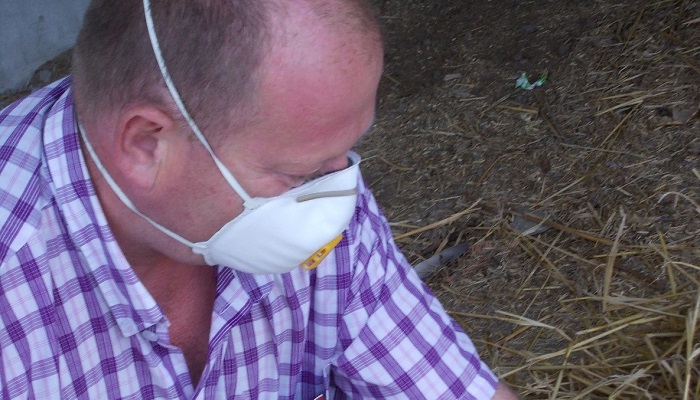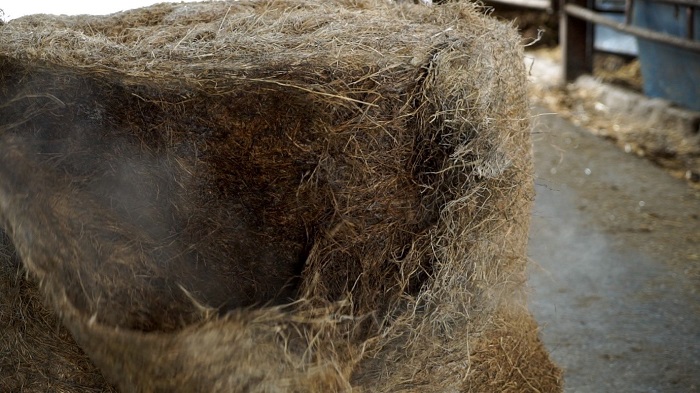21 July 2022
Preventing Occupational Respiratory Diseases in Farming

On Thursday 21st July Respiratory Health is the #FarmSafetyWeek theme. Farmers are at high risk for developing respiratory (lung) disease. About 60% of non-smoking Irish farmers report having some lung or breathing issues. John McNamara, Teagasc Health & Safety Specialist discusses preventing this
About 60% (6 in 10) of non-smoking Irish farmers report having some lung or breathing issues.
Dust and spores (from mould) can cause severe illness.
Sources of dust and spores
Sources of dust and spores include:
- mouldy hay
- straw or grain
- compost used in mushroom growing
- poultry feathers
- poultry droppings and
- dust in intensive livestock houses.
An earlier survey conducted by Teagasc National Farm Survey has indicated that the principal occupational health conditions suffered by farmers include : musculoskeletal disorders (50%), respiratory conditions (35%); contracting zoonotic infections from animals (7.5%) and other conditions (7.5%).

Dangerous spores released from mouldy bale of silage
Watch the video clip below on Farmer Respiratory Health
Farmer’s lung
The respiratory condition or ‘farmers lung’ or extrinsic allergic alveoli is a particularly serious condition cause by inhaling spores from mouldy material (hay, silage, straw etc.). When spores are inhaled they get deep into the lungs and their protein cause an allergic reaction. An important point is that one inhalation of high level of spores is sufficient to cause an allergic condition. From then on low doses of spores trigger the allergic reaction in the person. Thus, it is vital to avoid inhalation of spores but particularly high doses.
Some farm chemical can cause respiratory conditions if use incorrectly. It is vital to read and follow the manufacturers instruction.
Prevention
As a respiratory health condition may be irreversible, prevention is the best approach.
- Always be on the ‘look-out’ for mouldy material, such as hay, silage or feed. Take particular care to avoid inhalation of the blue/ grey spores that this material gives off. Dispose of this material safely and do not bring indoors.
- Ventilation by having high volumes of air movement is crucially important. Farm buildings require excellent ventilation for human health, but also for health and thrive of livestock. Existing buildings should be examined for air movement and altered if necessary. DAFM specifications give guidelines on ventilation.
- In addition to vigilance for spores and ventilation, it is advised to wear a suitable respiratory mask (EN 149 Type P2) in environments where there is a risk of spores or where a person has an existing respiratory condition. For effectiveness, it is crucial to use the mask to the manufacturer’s specifications.
- Farmers with a respiratory condition should consult with their GP.
Consult the ‘Farm Health and Wellbeing’ Booklet
Slurry gases
Slurry gases can also cause respiratory conditions, poisoning or death. Ventilation is important when agitating, moving or handling slurry. Never enter an enclosed tank where poison gases or a deficiency of oxygen may be present. Examine building for ‘blind spots’ where ventilation is inadequate and where gases can build up.
Consult the Teagasc/ H.S.A leaflet ‘Safe Slurry Handling’
#FarmSafetyWeek runs from July 18th – 22nd. Check out Teagasc Daily all this week for further updates
Learn more about Farm Health & Safety from Teagasc
